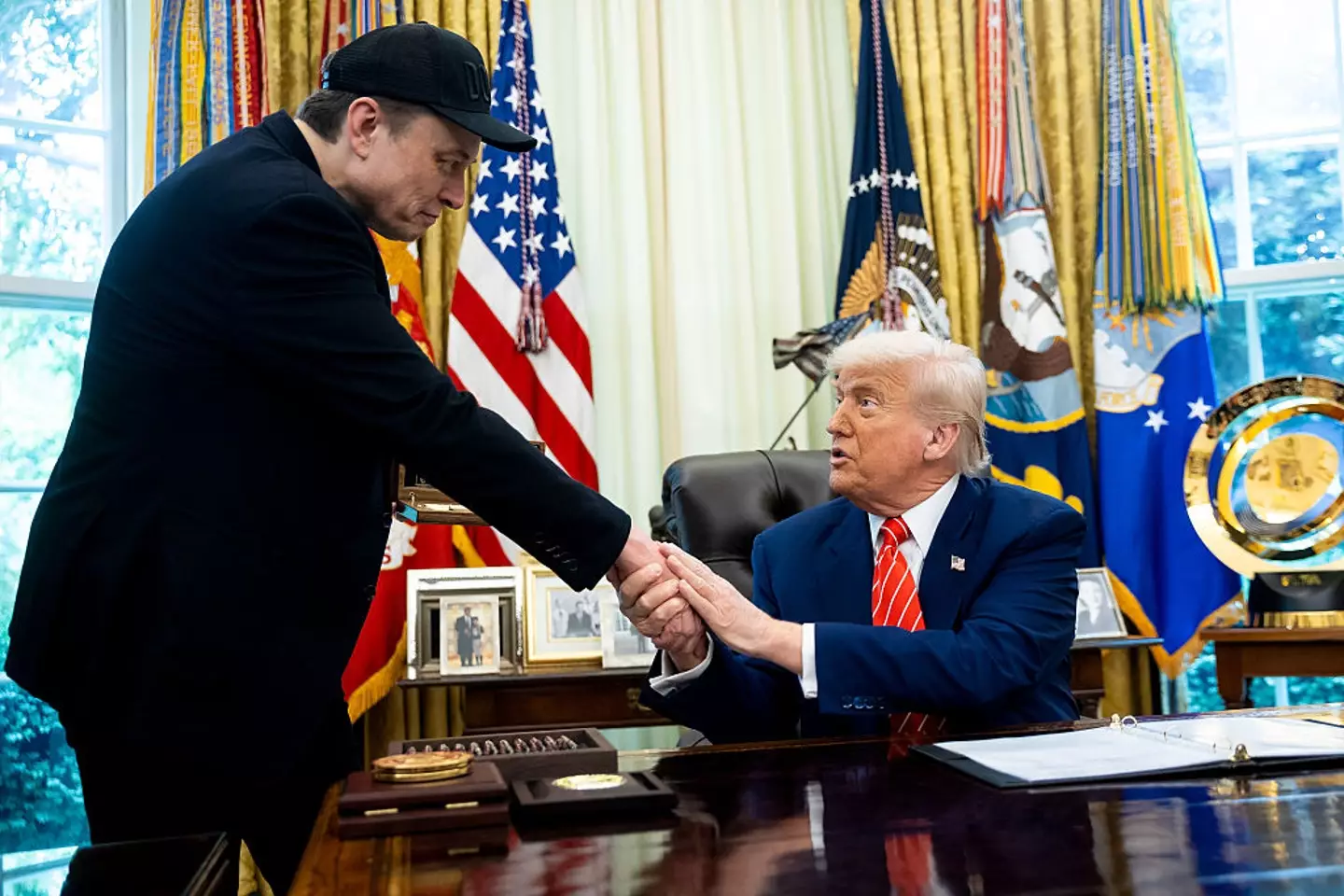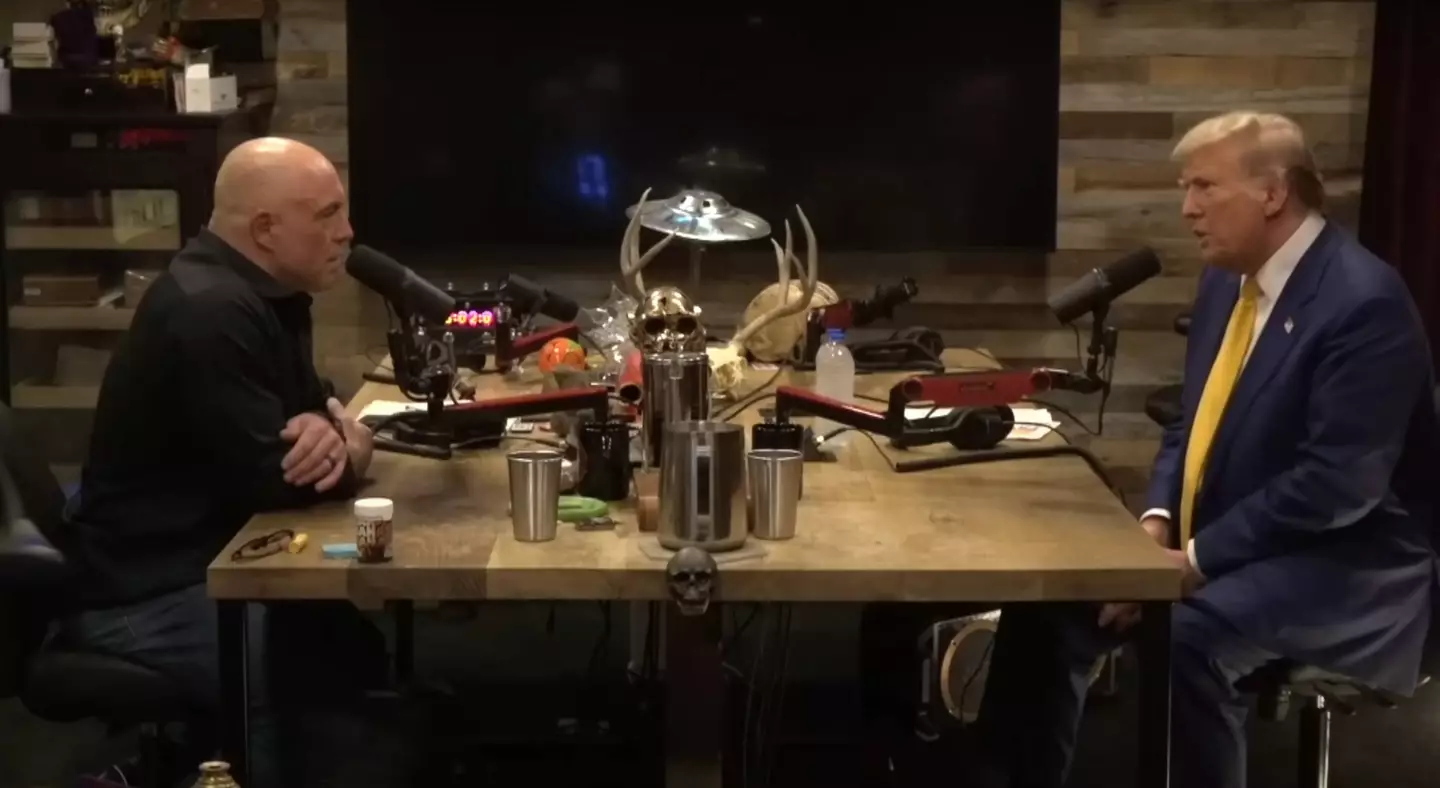
Although President Donald Trump is only just getting his feet back under the Resolute Desk for his second term, people are looking ahead at what the future holds for American politics.
While President Trump and the Republican Party managed to secure a landslide victory over Kamala Harris and the Democrats, the wheels of the political wagon already feel like they're wobbling.
Some have put Donald Trump's victory down to his lucrative partnership with Elon Musk, and considering the world's richest man is said to have donated a jaw-dropping $288 million to the 2024 campaign, those deep pockets must've helped.
One key area of success was said to be securing the 'manosphere' among young male voters. Appearing on podcasts and shows with the likes of Theo Von, Adin Ross, and Logan Paul, Trump also appeared on the chart-topping The Joe Rogan Experience podcast, while Kamala Harris was notably not invited to sit down with the favorite of the manosphere.
Advert

Although it wasn't all down to Musk, there's no denying that the Tesla overlord also has a notable place in the manosphere.
Now that the former First Buddy and President of the United States have parted ways, and the former has vowed to form his own America Party in competition with the Republicans and Democrats, there are questions about where the manosphere vote will go next time around.
President Trump has suggested he's not threatened by Musk's promises to form the America Party, but in an NPR piece with Ari Shapiro, the journalist and radio host thinks things could play out very differently.
Discussing the manosphere with NPR political reporter Elena Moore, the pair mulled over what's next for the bro vote.
When asked why Musk might want to hone in on the young male voter, Moore explained: "Third parties have traditionally taken away votes from major party candidates in close races, and Republicans are gearing up for next year's midterms, where the party in power does traditionally lose seats.
“So they're already on the defense. Plus, men under 30 are a really valuable group for the party to hold onto."

Referring to this demographic as a 'key part' of Trump's win, Moore reminds us how the manosphere shifted right by 12 points when compared to 2020: "They're also just not reliable Republican voters. Recent polling from the conservative-leaning American Enterprise Institute found that young men are uniquely critical of both political parties."
Politician/lawyer Dan Cox led that research, adding: "Musk coming in at this time is very interesting. And young men, in particular, have been disillusioned, not only by both parties but just by the entire political process in general."
Moore tells us that, regardless of gender or political party, young people have been less motivated to vote because issues they care about aren't part of their party's manifesto.
According to The Up and Up's Rachel Janfaza, there could be a major appetite for third-party candidates among Gen Z voters. Specifically, Musk might have even more pull for young men than Trump did. Janfaza's research suggests young men support Musk and his political trajectory, despite the America Party being a 'political question mark'. Still, Moore concludes that “some are also just not on board with Musk's decision to break from Trump."
She sums up by saying that while Musk was a 'major force' in the Trump campaign, he has an unproven track record. With a recent Harvard Youth Poll finding that men under 30 approve of Musk more than young women do, the majority is still against him. So for now, it looks like President Trump's manosphere remains largely intact.